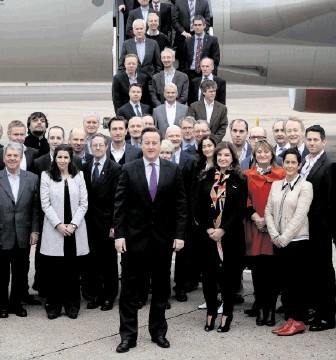
Chinese investment in the United Kingdom is producing winners and losers as the superpower ploughs billions into Britain and UK companies sign deals for new business in the Far East, but whose cheap steel has contributed to the loss of thousands of jobs.
The assessement comes from University of Aberdeen economist Dr Xin Jin, who said that the policy of becoming a key trading partner with China being pursued the David Cameron’s Government would provide many new opportunities for UK business.
She said UK oil and gas companies could benefit from exporting their expertise to China as the country continues its efforts to develop its own hydrocarbons sector.
Britain rolled out the red carpet this week for Chinese president Xi Jinping, whose state visit heralded the long-expected announcement that China would invest £6billion in the controversial new £24billion nuclear power plant at Hinkley Point.
Investment by Beijing in Britain’s first UK nuclear power plant in a generation is part of what the Government hopes will amount altogether to £30 billion of agreements.
Construction of Hinkley Point C will create 25,000 employment opportunities and will support 900 direct jobs during its 60-year lifetime, according to operator EDF.
BP has also announced a multibillion pound deal to supply liquefied natural gas to China Huadian Corporation over two decades.
However, global economics and free trade policies mean industries such as steel are at the mercy of the market. As the commodity price plummets thousands of jobs are being lost across the UK at Tata Steel and Caparo and the SSI plant at Redcar on Teeside.
Dr Jin, a lecturer at the University of Aberdeen, said: “It is a typical, classic example of economic theory in practice where there are winners and losers. For most of the time between 2000-2014 the UK has been balanced in terms of trade and in 2013-14 Britain was a net exporter. The largest amount of imports came from EU countries.
“China has made more steel available to the global market, which may be bad news for the British steel industry but overall, cheaper steel is likely to benefit the consumer and potentially the country as a whole. Business people rationally respond to it. It is classic economics.”
Dr Jin said a similar situation existed in the oil market, where demand from China had slowed and global oversupply continued to depress the oil price – which has adversely affected the UK oil and gas industry and Aberdeen in particular.
“I do not think we will see a recovery in the oil price in the short to mid-term, but the UK, Scotland and in particular, Aberdeen, should look to exploit its intellectual exports. I am very positive in this aspect. We have an accumulation of technical knowledge that is not easily learned. This is the human capital that other countries lack and which is in demand.”